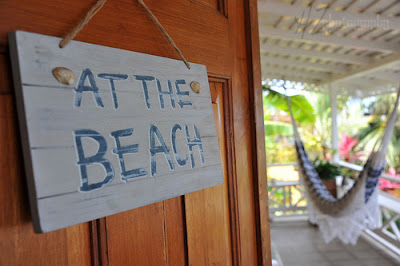My homework from my therapist J this week was to work out a plan of action, you know, for when the sh*t hits the fan :) so that I will be prepared in advance and know what to do when I have another *bad* day...
So here's my plan:
Breathe
I put the question of rapid destress techniques out to twitter the other day and got the great suggestion of
breathe in for 5 and out for 7. Not only did this slow my breathing right down but it diverted my attention while I concentrated on counting. And this distraction was very helpful. I really did feel much better very quickly. (thank you
Katie)
Remember
I have a list of single words that very special people have either said about me or said to me which have meant a lot to me:
love, loyal, trust, hope, deserve, stronger, awesome
I plan to get these words engraved in my bangle so I can carry them with me at all times and can then look at them when I need support and there's no one around to give it.
Face it
Sometimes I have a panic attack for absolutely no reason that I can think of. But sometimes, deep down, I do know the reason. My dear friend June Alexander says
'action not anxiety' and she is right. Sometimes no matter how hard it is if I can just face and deal with what is making me anxious then I can move past it.
Listen
I love the song
"I can see clearly now" - it has a great deal of meaning to me for where I am right now and for where I am trying to move forwards to. If I am stressing I like to listen to this (quite loudly) on my ipod.
Talk
The last time I had a panic attack (only mild luckily) I explained to my husband what was going on. I have friends I can email when this is happening and that is helpful - but I had never told the person in the room what was going on. I had just smiled and tried to pretend it wasn't happening, often right up until the point that I just start screaming and throwing things. But this time I told him it is like that awful adrenalin feeling you get when you know you are about to get into terrible trouble for something you didn't do. And to make it worse, the last time this happened there was no reason for it - just hit me out of the blue.
Telling him really relieved me of so much of the pain I was in. I could feel the anxiety, but did not have to suffer it. It was shared, and that helped immensely. So 'talk about it' is definitely on my plan.
Get help
I'm usually not keen on having the kids 'taken off my hands' as this just feeds my feeling of 'everyone would be better off without me' - but I do like company when I'm feeling anxious and afraid. So letting my husband
take over as primary carer for the afternoon but still including me in the fun, is what I find helpful. I don't want to be sidelined or left out, but I sometimes just want someone else to field the endless questions and whinging and arguments.
Wait
The feeling passes. I know it does. And I know that I haven't done anything wrong. I need to remind myself of this positive fact. I haven't done anything wrong. I'm not stupid and incompetent. If I have made a mistake, it's just a mistake. I can face it and deal with it, but it's not the end of the world. I am not to blame for everything. Everything is not always my fault.
This feeling will pass.
I would love to never have another *bad* day as long as I live, but I suppose that's just too much to ask for - so hopefully I am prepared to get through the inevitable when next it hits me from out of the blue.



